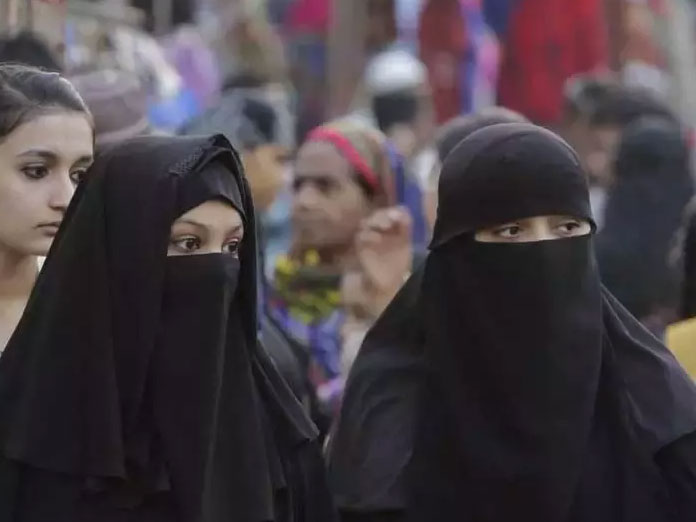Live
- Deepam-2 Scheme Reaches 5 Million Beneficiaries in Three Weeks, says Nadendla Manohar
- Will RG Kar tragedy impact Bengal bypoll results?
- BGT 2024:25: Josh Hazlewood picks four as Australia bundle out India for 150
- BRS rallies support for Lagacharla ‘victims’
- COP29: Scientists, artists, faith leaders call for greater commitment to delivery of climate finance
- Woman donates liver to husband, saves life
- Mechanic Rocky Review: Thrilling Action Film with Twists and Great Performances
- Ponguleti Sudhakar Reddy rubbishes Rahul Gandhi's claims on Modi and Adani
- ‘We can’t take things for granted’: Jayasuriya on balancing formats and Sri Lanka’s path to WTC final
- Prakash Ambedkar ready to 'power' the winner in Maha polls - Mahayuti or MVA
Just In

The triple talaq bill is aimed at liberating Muslim women from a life of fear, President Ram Nath Kovind said January 31
Under the proposed law, giving instant triple talaq will be illegal and void and will attract a jail term of three years for the husband.
The triple talaq bill is aimed at liberating Muslim women from a "life of fear", President Ram Nath Kovind said January 31.
Addressing a joint sitting of both houses of Parliament at the beginning of the Budget session, he said the government is "striving hard" to get the bill passed by Parliament.
"With a view to liberate our Muslim daughters from a life of fear and anxiety and to provide them with equal right to lead their lives at par with other daughters, my government is striving hard to get the triple talaq bill passed by Parliament," he said.
In December last year, a fresh bill, to make the practice of triple talaq among Muslims a penal offence was introduced in Lok Sabha to replace an ordinance issued in September.
Under the proposed law, giving instant triple talaq will be illegal and void and will attract a jail term of three years for the husband.
The Muslim Women (Protection of Rights on Marriage) Bill, 2018 has superseded an earlier bill passed in the Lok Sabha and pending in Rajya Sabha.
The earlier bill was approved by the Lower House. But amid opposition by some parties in the Upper House, the government had cleared some amendments, including introduction of a provision of bail, to make it more palatable.
But as the bill continued to face resistance in Rajya Sabha, the government issued an ordinance in September, incorporating amendments.
The ordinance was repromulgated recently as the first one was about to expire.
The government has maintained that despite the Supreme Court striking down the practice of talaq-e-biddat (instant triple talaq) as unconstitutional, men were divorcing their wives on flimsy grounds and even via WhatsApp.
The opposition has said that divorce cannot be made a penal offence and the provisions of the bill were against basic principles of the Constitution.
While the proposed law makes it a 'non-bailable' offence, an accused can approach a magistrate even before the trial to seek bail. In a non-bailable offence, bail cannot be granted by police at the police station.
A provision has been added to allow the magistrate to grant bail 'after hearing the wife'.
The magistrate would ensure that bail is granted only after the husband agrees to grant compensation to the wife as provided in the bill. The quantum of compensation will be decided by the magistrate, as per the bill.
The police would lodge an FIR only if approached by the victim (wife), her blood relations or people who become her relatives by virtue of marriage. Neighbours and others cannot lodge a complaint under the proposed law.
The offence of instant triple talaq will be 'compoundable'. Now, a magistrate can use his powers to settle the dispute between a husband and his wife. This will happen only when the wife approaches the court.
Under a compoundable offence, both parties have the liberty of withdrawing the case.
The proposed law would only be applicable on instant triple talaq or 'talaq-e-biddat' and it would give power to the victim to approach a magistrate seeking 'subsistence allowance' for herself and minor children. A woman can also seek the custody of her minor children from the magistrate who will take a final call on the issue.

© 2024 Hyderabad Media House Limited/The Hans India. All rights reserved. Powered by hocalwire.com







